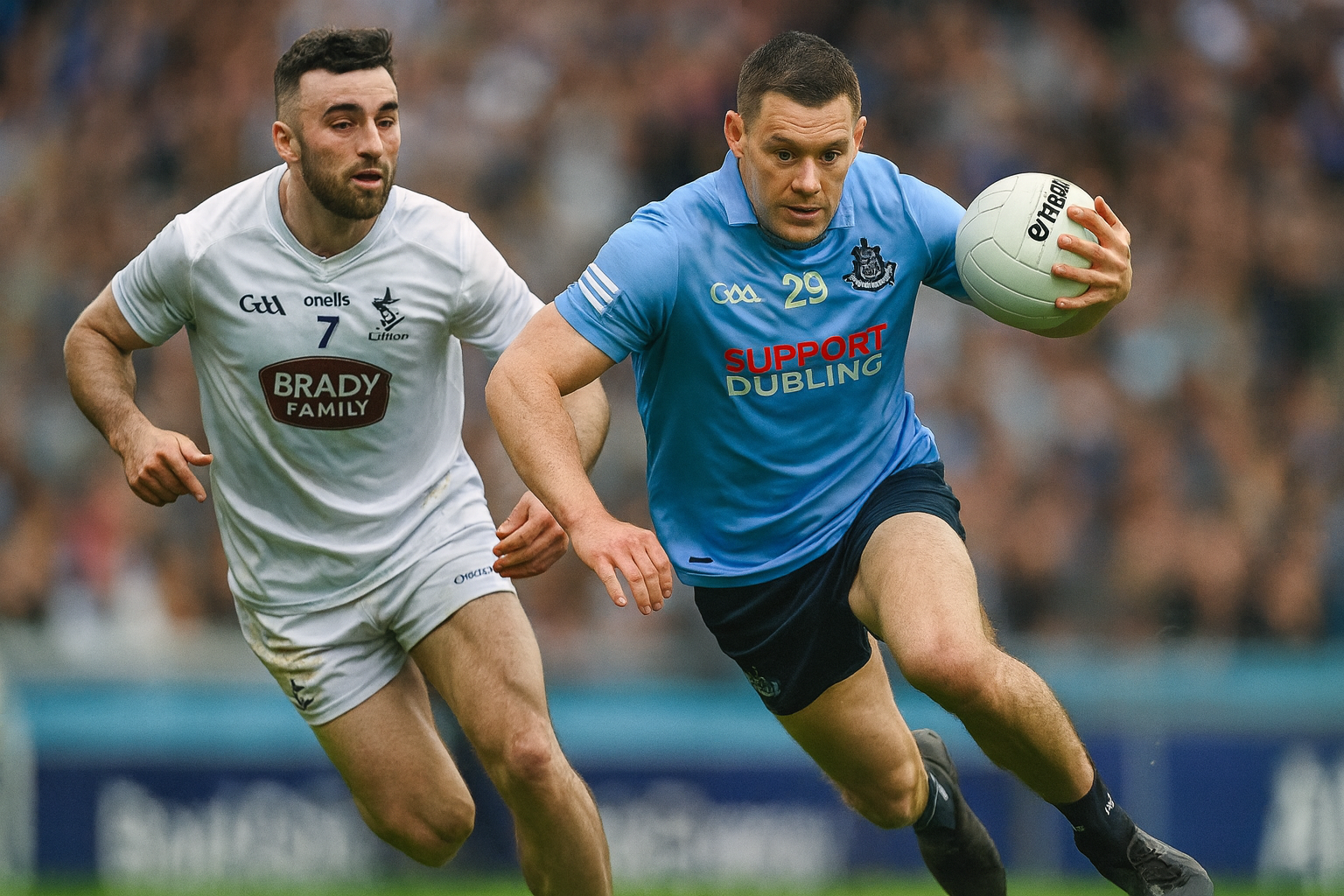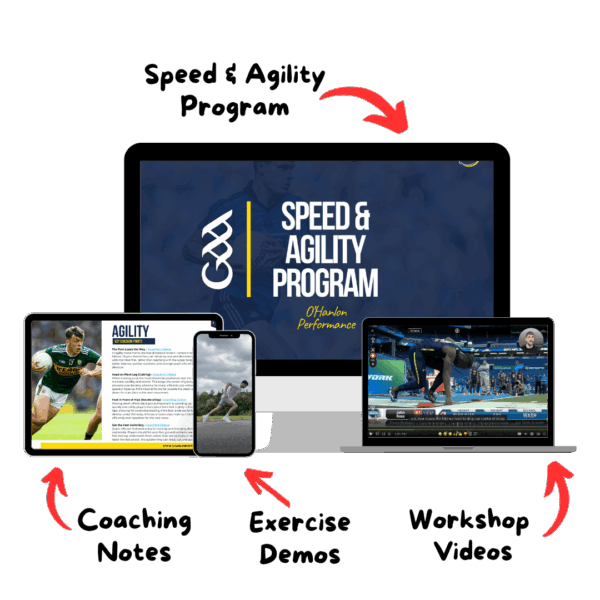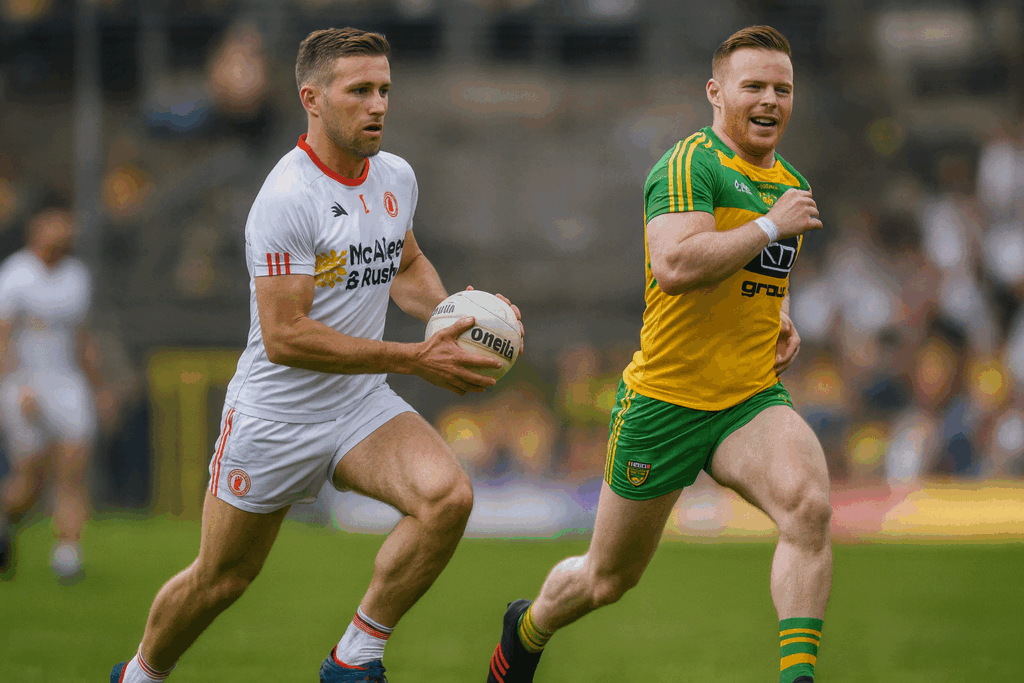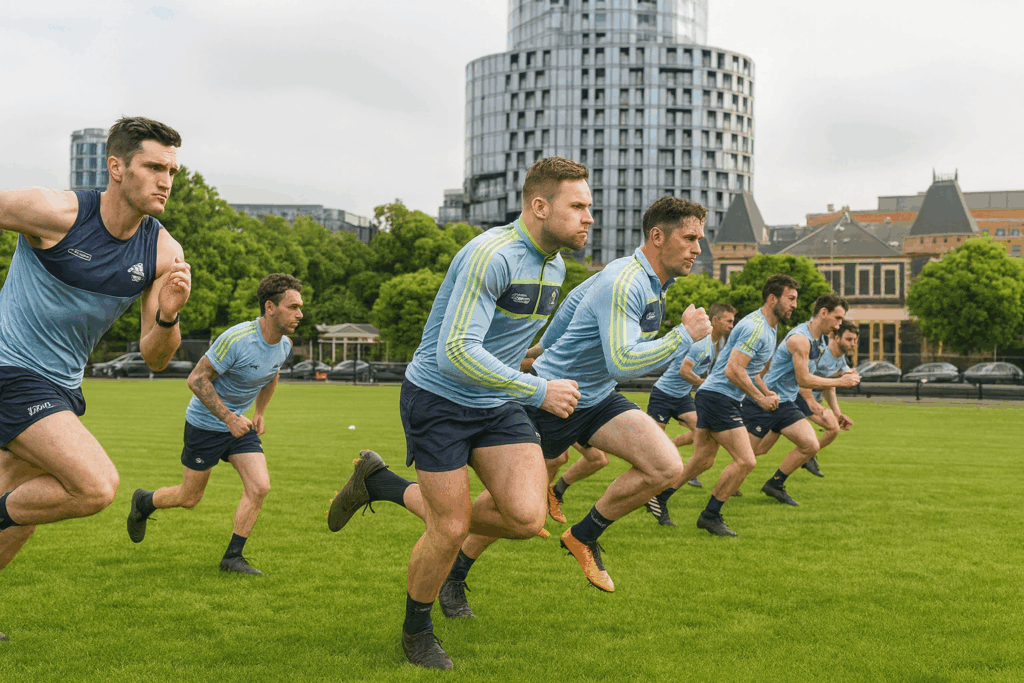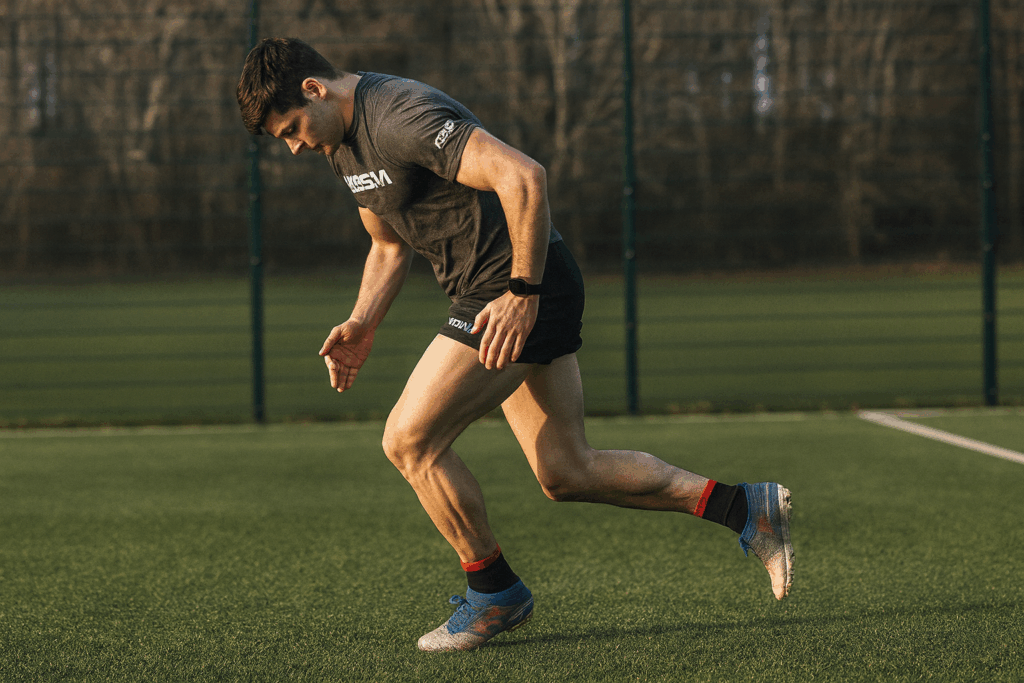Introduction
Agility is a cornerstone of success in Gaelic Athletic Association (GAA) sports. Whether you’re aiming to outmanoeuvre opponents in Gaelic football or maintain balance during a fast-paced hurling match, agility is key to improving performance on the field. Defined as the ability to move quickly and adapt to changing conditions, agility requires a blend of speed, balance, and problem-solving. In this blog, we’ll explore how GAA players can enhance agility through targeted training techniques, better running mechanics, and a strong recovery strategy.
Why Agility Matters in GAA
Agility allows players to respond quickly to unpredictable gameplay scenarios. For instance, a defender may need to rapidly shift direction to track an attacker while maintaining balance and control. This ability not only boosts performance but also helps reduce the risk of injuries caused by sudden movements or poor posture during high-speed actions.
In GAA, where the environment is dynamic and ever-changing, agility becomes a vital skill for players at all levels.
Key Components of Agility Training
1. Environment and Problem-Solving Skills
Agility isn’t just about physical conditioning; it also involves how players interact with their surroundings and solve problems on the fly. By practising drills that simulate game scenarios, athletes can improve their decision-making and reaction times.
- Anticipation Skills: Players should learn to anticipate opponent movements and adapt accordingly.
- Drills with Variable Difficulty: Changing conditions during drills mimics real-game unpredictability, sharpening reflexes and muscle memory.
GAA Speed & Agility Program I
Become faster, sharper, and more explosive on the pitch where it counts.
✅ Two Speed & Agility Sessions
✅ Coaching Workshop Videos
✅ Exercise Demo Videos
Built for GAA. Designed for results.
2. Running Mechanics for Improved Agility
Running mechanics significantly influence speed and the ability to change direction efficiently. Proper form helps players accelerate faster and avoid unnecessary energy loss.
- Key Tips:
- Maintain good posture with a straight back and engaged core.
- Strike the ground with your mid-foot or forefoot to minimize braking forces.
- Use controlled arm movements to generate power and maintain balance during directional changes.
Correct mechanics enhance both speed and agility, helping GAA players perform sharp turns and rapid sprints with ease.
3. Speed and Agility Training Techniques
Training for speed and agility is essential to staying ahead of opponents. Focused drills can improve reaction times, coordination, and quickness.
- Acceleration and Deceleration Training: Mastering quick starts and stops builds control and reduces injury risk.
- Change of Direction Drills: Shuttle runs and zig-zag courses simulate in-game movements, sharpening agility under pressure.
4. Plyometric Training for Explosive Power
Plyometrics, involving explosive exercises like jumps and bounds, are excellent for developing the power required in GAA.
- How It Works: These exercises enhance muscle-tendon elasticity, allowing players to generate more force rapidly.
- Examples:
- Box jumps to improve vertical leap and power.
- Lateral bounds to develop side-to-side agility for quick direction changes.
5. Strength Training: The Foundation of Agility
Strength training is essential for building the stability and power necessary for agile movements. A stronger athlete can accelerate quickly, maintain balance, and execute sharp directional changes with precision.
- Benefits for GAA Players:
- Improved muscular power for faster sprints.
- Better balance and coordination to navigate dynamic gameplay.
- Enhanced injury prevention through increased joint stability.
6. Recovery and Maintenance
Agility training can be intense, making recovery crucial for consistent performance. Proper recovery strategies also help prevent injuries and ensure longevity in training.
- Tips for Recovery:
- Active Recovery: Light exercises such as stretching or yoga improve flexibility and reduce muscle stiffness.
- Nutrition and Hydration: Fuel your body with nutrient-rich foods and stay hydrated to optimize muscle function.
- Rest Days: Schedule rest days to allow muscles to repair and grow stronger.
Maximizing Performance Through Agility
Agility is a game-changer for GAA players, enabling them to move swiftly, adapt to challenges, and maintain balance during fast-paced gameplay. Incorporating agility drills, plyometric exercises, and strength training into your routine can significantly boost performance on the field.
By focusing on running mechanics, environmental awareness, and problem-solving skills, GAA players can stay one step ahead of their opponents. Remember to prioritize recovery to maintain peak performance and prevent injuries.
Start incorporating these techniques into your training regimen today to master agility and dominate on the GAA field.

